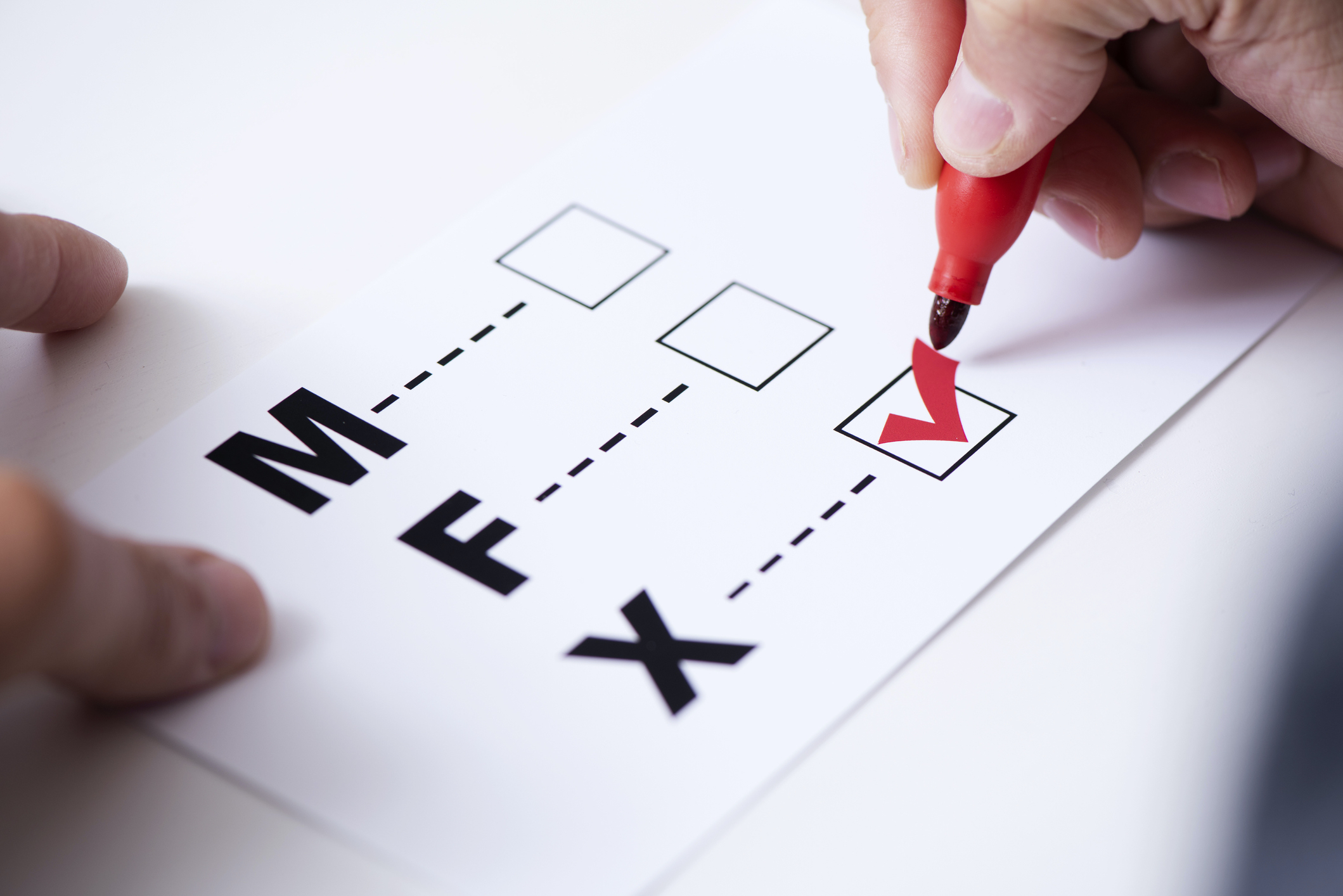
On the surface, it is just another box to check on another online form. But to many, it is an empowering, milestone moment in which their real identity and their legal identity finally match.
As of September 1, McGill students and applicants can now list their legal gender marker as “X” on McGill records to match their legal documents. This update comes just three months after Quebec passed Bill 2, a legislation which recognizes the new third legal gender marker X. McGill’s Student Information System now allows applicant users to select and student users to update the legal gender marker on their file with the new gender marker X.
“This is an important update to our systems because it allows applicants to and students at McGill to feel their actual identity as well as their legal identity is reflected at McGill” says Madeleine Nadler, Business Analyst, Equity, Diversity, and Inclusion, Enrolment Services. “Many trans students face a lot of bureaucratic barriers. This update removes a huge barrier to those who wish to have all their records and documents aligned.”
Three easy steps
Nadler says great efforts were made to make the process to update your legal gender marker at McGill, “as easy and smooth as possible.”
Current Students may update their legal gender marker using the following process:
- Complete a Personal Data Change Form
- Provide a copy of the appropriate legal document indicating the legal gender marker that matches the updated legal gender marker indicated on the Personal Data Change Form (if not already provided). Accepted documents are listed in the eCalendar under the Legal Name
- Submit the completed form and copy of the legal document by email attachment (PDF or TIFF format) to legaldocumentation@mcgill.ca
Applicants can select their legal gender marker at the time of their application in the SLATE or Minerva web applications. If an applicant wants to change their legal gender marker in Minerva after their application is submitted, they can contact Service Point. To change it in SLATE, they can complete the applicant profile form in the applicant portal.
Students who need further assistance updating their legal gender marker may contact Heidi Emami, Associate Registrar, Management of Academic Records and Examinations: heidi.emami@mcgill.ca.
Positive impact on the McGill community
In speaking with various members of the University community, it is clear that the gender marker X option is an important step for McGill.
“For years, students who needed name and gender marker changes have struggled to access education because historically it has been administratively either impossible or very difficult to accomplish,” says Brooklyn Frizzle, Administrative Coordinator of Queer McGill. “There have been a lot of great recent changes. Name changes are becoming more accessible and gender marker changes – specifically gender X as an option – is another important step towards increasing accessibility for transgender students and non-binary students specifically.”
“Including the legal gender marker X on University forms sends an important message that McGill is a welcoming place for trans, nonbinary, intersex and gender nonconforming members of our community,” says Andrea Clegg, Equity Education Advisor, Gender Equity and 2SLGBTQ+ Education. “This step forward also supports the University’s mission which is informed by core principles of equity and inclusiveness.”
“McGill’s quick response to implement a provincially-mandated third legal gender option in the Student Information System is an important development for a number of reasons,” says Jason Harley, Associate Professor in the Department of Surgery. “First, it signals McGill’s willingness and adaptability to recognize and support gender identity minorities in our academic community. This is a crucial component in ensuring that McGill is a welcoming, respectful, and safe space capable of attracting, retaining and helping bright gender identity minority students flourish. Having official student records recognize one’s gender identity is also a way of empowering students to feel welcome.”
Helping produce systemic change
Law professor Ignacio Cofone, says research shows that legal changes like gender marker X increases social acceptance.
“For example, in places where equal marriage [laws were] passed, acceptance towards gay people increased quite rapidly because of the symbolism that laws like that have in terms of accepting groups of people,” says Cofone, Canada Research Chair in Artificial Intelligence Law and Data Governance; and Chair, Subcommittee on Queer People, Joint Board-Senate Equity, Diversity, and Inclusion Committee.
“The gender X marker is very important for the individuals that choose to exercise that option, but it’s also important more broadly for the symbolic value that it has for the community and for the demonstration of acceptance that it has for others. So, while there’s a lot of room to move forward in increasing the acceptance and reducing the mistreatment of people who identify as nonbinary, I think this is this is certainly an important one,” says Cofone.
“I see this change in McGill in the same way that I see equal marriage laws across the world, not as the end goal, but as the beginning of how an institution can push to slowly, through different instantiations, to produce systemic change,” says Cofone.
Moving forward
As Frizzle points out, this is just one step in an ongoing journey.
“Now that it is possible to change your gender marker to X, there is still a lot of work that needs to be done to promote it,” they say. “Making it possible to change your gender marker or your name is an important first step, but there needs to be follow up and there needs to be a lot of community outreach, a lot of education to ensure that these changes are actually being implemented and being used, otherwise they don’t benefit students,” says Frizzle.
Get more information on the Student Records Name and Gender webpage.

Proud alumnus today